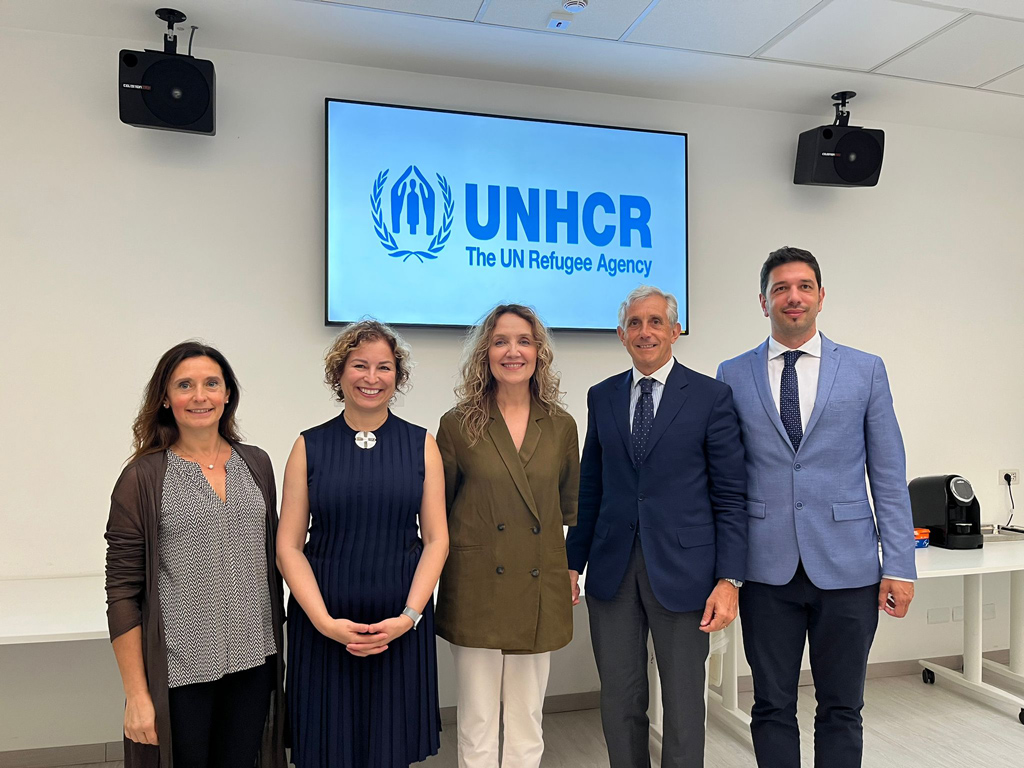International cooperation for sustainable development is an integral and significant part of Italy’s foreign policy. It is inspired by the principles of the United Nations Charter and the Charter of Fundamental Rights of the European Union. In accordance with the principle set out in Article 11 of the Constitution, its action contributes to the promotion of peace and justice and aims to promote solidarity and equal relations between peoples, based on the principles of interdependence and partnership.
Over the decades, Italian development cooperation has been structured and strengthened in terms of instruments, ambitions, as well as internal and external partnerships, and has also played an increasing role within the G7, the G20 and the broader multilateral framework. At a bilateral level, development cooperation has also contributed to strengthening relations with many partner countries in the Mediterranean, Africa, the Middle East, Asia and Latin America.
Pursuant to Law No. 125 of 11 August 2014, which regulates Italian development cooperation, the Three-year Programming and Policy Planning Document (PPPD) 2024-2026 is the fundamental reference text for the entire Italian development cooperation system, through which the Sustainable Development Goals contained in the United Nations 2030 Agenda are defined within the three-year development cooperation strategy. This Document is the result of a consultation and sharing process carried out by the Directorate General for Development Cooperation (DGCS) of the Italian Ministry for Foreign Affairs (MAECI), with the contribution of the Italian Agency for Development Cooperation (AICS), the other Administrations involved in development cooperation, Cassa Depositi e Prestiti (Deposits and Loans Fund), Regions and Local Authorities, Civil Society Organisations (CSOs) and other players of the development cooperation system.
The approved Document is valid for the three-year period 2024-2026. It identifies 38 priority countries, chosen on the basis of historical ties, long-standing bilateral relations, as well as foreign policy, international stability, and security reasons. In line with the Mattei Plan for Africa, priority countries in Africa have increased from 11 to 23 (Egypt, Libya, Tunisia, Eritrea, Ethiopia, Kenya, Somalia, Sudan, Uganda, Burkina Faso, Chad, Côte d’Ivoire, Ghana, Guinea, Mali, Mauritania, Niger, Republic of Congo, Senegal, Malawi, Mozambique, Tanzania, Zambia); besides these, it includes 5 countries in the Middle East (Jordan, Iraq, Lebanon, Palestine, Syria), 1 in the Balkans (Albania), 3 in Eastern Europe (Armenia, Moldova, Ukraine) 3 in Asia (Kyrgyzstan, Pakistan, Tajikistan) and 3 in Latin America and the Caribbeans (Colombia, Cuba, El Salvador).
The Italian Cooperation’s action starts from the assumption that economic growth is not enough to reduce poverty and that it must be inclusive and able to involve the three dimensions of sustainable development, i.e. the economic, social and environmental dimensions. In view of reflecting the multidimensional nature of development, the intervention sectors identified as priorities in the three-year document are the following: economic development (with a particular focus on women’s and young people’s employment); sustainable development; food security; support for public health systems; child protection and, more generally, institution building activities. Gender equality is a crosscutting sector, which aims to foster women’s empowerment and strengthen broad-based growth processes. While programming interventions, the Italian Cooperation makes reference to the so-called 5 “Ps” (People, Planet, Prosperity, Peace, Partnership) of the Agenda 2030, the paradigm to which the international community has adhered with the aim of handing over to future generations a planet under the banner of sustainability.
Last News
New aid from the Italian Foreign Ministry for the Paediatric Hospital in Odesa. Cirielli chairs Joint Committee for Development Cooperation
The Deputy Minister of Foreign Affairs and International Cooperation, Edmondo...Deputy Minister Cirielli in Seville participated in the Fourth International Conference on Financing for Development
The Deputy Minister of Foreign Affairs and International Cooperation, Hon....Adoption by the Council of Ministers of the Three-year Programming and Policy Planning Document (PPPD) 2024-2026 for Development Cooperation 2024–2026
On 20 June, the Council of Ministers adopted the Three-year...
Memorandum of Understanding on labour corridors for refugees signed
A new Memorandum of Understanding was signed today by the...- See all
